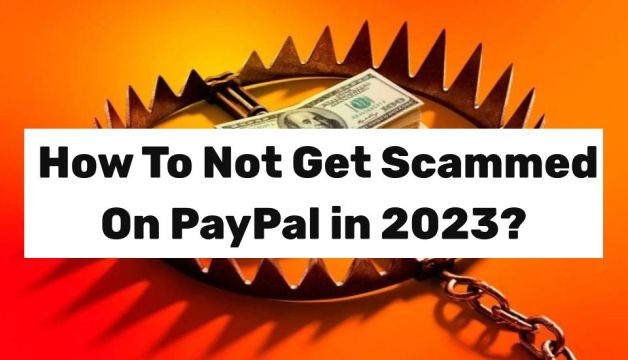Last Updated on: 21st January 2025, 10:53 pm
How To Not Get Scammed On PayPal in 2025?
PayPal is a behemoth for online payment processing, making it an attractive target for scammers looking for an easy payday. By learning how scammers often work at PayPal, you can be better protected if they target you.
That’s why VPNOverview cybersecurity expert Theodor Porutiu has outlined the top PayPal scams of 2023 and how to avoid them.
These are the top PayPal scams of 2025:
Problem With Your Account Fraud
Email is the preferred method for scammers to steal your money. You may receive a phishing email reporting a problem with your PayPal account, and the email also contains a link and a request to click it to log into your account.
These scams are among the most common social engineering attacks aimed at gaining access to your PayPal account.
Promotional Scams
This scam sends you an email offering you a cash refund or some other financial incentive. The email will instruct you to log into your PayPal account to verify some details in order to claim this reward.
As with other email scams, the link in the email takes you to a fake PayPal website. If you click the link and enter your credentials, scammers can access your credentials and empty your account.
Prepayment Scam
This scam plays on emotions by sending you an email notification that you are won, inherited, or eligible to receive a large sum of money from an unexpected source.
The only downside is that you have to send a small amount through PayPal first to cover transaction fees (or other bogus expenses), but once you send the small amount, you will never hear from the scammer again and you won’t have the money anymore that you sent.
Shipping Address Scam
Scammers have a number of shipping tricks up their sleeves to try and steal your money from PayPal. Unlike spam emails that redirect you to a fake PayPal website, these scam methods involve interacting with you on the genuine PayPal platform.
If you sell items online, you are the target of these scams. Several types of common PayPal scams affect shipping addresses, including:
- The buyer wants to use a preferred shipping method: The buyer will ask you to ship their item with their preferred carrier, simply redirect the package to a different address, then contact PayPal and file a non-receipt claim and request a full return. Since you cannot prove that the item was not received, you are left with no money, the item, and even the shipping costs.
- Buyer provides their own shipping label: The buyer offers to send you a prepaid shipping label, redirect the package to an alternative shipping address, and state that you never received the item.
- Buyer Provides Fake Shipping Address: If the shipping company is unable to deliver the package to the invalid shipping address provided, the scammer steps in and provides a new legitimate shipping address, but since the package is being rerouted, the buyer will claim that they never did receive it. the object.
Alternative Payments Scam
This is not a scam per se, but an action scammers take to leave you with no options after the scam.
Sometimes a scammer will ask you to transfer money through PayPal’s “Friends and Family” option. While this may sound good since it removes the fees that PayPal charges on standard sales transactions, paying for goods isn’t allowed in the friends and family money transfer option.
Payments made this way are no longer protected by PayPal’s protection program and once you transfer money for goods this way you are not eligible for fraud claims.
Waiting For Payment Fraud
A buyer contacts you through PayPal to pay for an item you’re selling. They massage you and claim to have made the payment, but PayPal won’t release the money until you provide a tracking number.
The scammer wants you to ship the product and provide the tracking number before receiving the payment, and if you do that, the fraudulent buyer will receive the item and leave without paying.
Fake Charity Scam
For example, in the event of a natural disaster, many people look to local charities where they can donate to relief efforts. Scammers often use this to their advantage by creating fake charities or donation sites and asking you to donate to fake charities through PayPal.
Reminder Phishing Email Scam
This scam sends you an email warning you of “suspicious activity” on your PayPal account, usually for large transactions. The email will ask you to call a number to cancel the transaction. This number then redirects you to a fraudulent call center that attempts to obtain your PayPal login details and other personal information.
This scam can be very convincing for several reasons. Scammers use realistic email designs and even create fake invoices to create a sense of urgency.
Here’s How To Avoid These Scams
There are several steps you should take to avoid scams:
- Never send money outside of PayPal after completing a transaction on the site. For example, if you make a transaction with PayPal, but your customer accidentally transfers more than the agreed amount. This other person now wants a refund to be sent through another platform, but if they comply with their request, PayPal can’t help you because the refund was processed outside of their system. If a buyer overpays you, cancel the transaction immediately and start over.
- Always use your own shipping method. When you choose the shipping method, you are in control of the delivery, and don’t be fooled by incorrect shipping labels or rerouted packages.
- Only ship to the address listed on the transaction details page. If you only ship to this address, you meet one of the requirements of PayPal’s Seller Protection Program.
- Only trade with verified buyers and sellers. Verifying a PayPal account can be cumbersome and requires sharing personal information with the platform. Whoever did this is probably not a scammer. When doing business with unverified PayPal accounts, proceed with extreme caution.
- Be careful with links and attachments in emails. Never click on links in emails, even if they look legitimate. Logging into your PayPal account directly in your browser or app is much more secure.
- Get a good antivirus program. Some PayPal scammers try to install malware on your computer. Never download anything you receive via email and use reliable antivirus software like Norton.
- Only contact PayPal using the number provided on the website, and remember that official PayPal communications always address you by name.
Also Read: Emirates Issues New Flights To Canada’s Second Largest City

Researcher, Blogger, Content Writer, Online Marketing Expert, Aptitude Test & Admissions Expert, Career Counselor.
PEC REGISTERED. ENGINEER. (NED University of Engineering & Technology)
CEO / Founder (The Educationist Hub)



